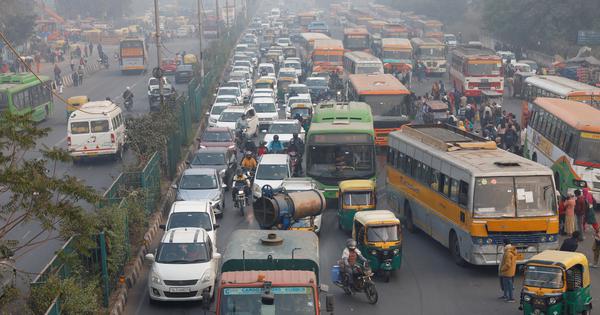Supreme Court urges exploration of options to protect livelihoods while addressing air quality issues.
The Supreme Court has called upon the Commission for Air Quality Management to explore alternative measures rather than imposing a blanket construction ban during the winter months in Delhi and the surrounding National Capital Region. This directive comes in light of the negative impact such bans have on the livelihoods of daily wage workers, as highlighted by a bench consisting of Chief Justice BR Gavai and Justice K Vinod Chandran. The court remarked that workers traveling from various parts of the country face joblessness during the construction halt periods.
Concerns were raised regarding the compensation provided to these workers, with the court noting that several applications have been submitted alleging inadequacies in the compensation process. The bench emphasized the need for the air quality panel to engage in discussions with state authorities to formulate concrete pollution prevention strategies, with a mandate to complete this within three weeks.
This discussion occurs within the context of a suo motu case addressing vacancies in state pollution control boards and committees. Historically, the Commission for Air Quality Management has implemented construction bans as part of its Graded Response Action Plan (GRAP) to combat air pollution in the NCR region during winter months. Earlier in February, the court had instructed the states and Delhi to provide compensation to workers impacted by these construction restrictions.
During the latest hearing, the bench directed the states of Haryana, Punjab, Uttar Pradesh, and Rajasthan to address the vacancies in their pollution control boards within three months. Considering the imminent arrival of winter, the court suggested that these vacancies could be filled on a deputational or contractual basis for the next three months specifically. Additionally, the court urged the completion of the promotional post-filling process within six months.
The matter is set for further examination on October 8. In May, the court had issued contempt notices to the chief secretaries of Delhi, Uttar Pradesh, Haryana, and Rajasthan for failing to comply with its prior directive to fill vacancies in pollution control boards and committees by April 30.
Furthermore, the court proposed that stringent measures, including potential arrests, might be necessary to deter farmers from burning stubble. Chief Justice Gavai acknowledged the importance of farmers to the nation but asserted that this does not justify the unchecked practice of stubble burning, which significantly contributes to air pollution in North India. He urged the counsel for the Punjab government to consider imposing penalty provisions for agricultural violations.
Stubble burning is a common practice among farmers who burn crop residue to prepare fields for the next planting season. This activity, combined with seasonal weather changes like lower temperatures and reduced wind speeds, exacerbates air pollution in the region. In October, the court summoned the chief secretaries of Punjab and Haryana due to dissatisfaction with the lack of legal actions against stubble burning. It criticized the weakening of provisions aimed at curbing air pollution under the 2021 Commission for Air Quality Management in NCR and Adjoining Areas Act, stating that the government had rendered these provisions ineffective.








